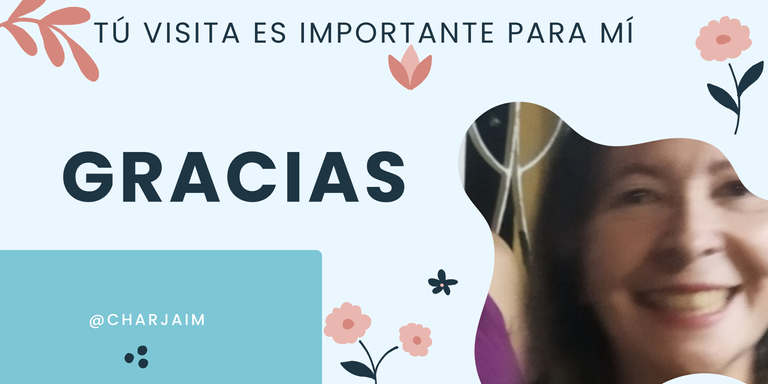Saludos amigos de la comunidad @holos-lotus. Nuestro amigo @emiliorios ha estado proponiendo temáticas, que provoquen mayor interacción, algo tan importante en estas plataformas.
El tema de esta semana es bastante interesante, con muchas aristas que escudriñar, por lo que además de mi comentario en su post, al cual invito a visitar quiero dejar algo más en esta publicación para continuar el debate.
Nosotros nos formamos bajo el tema de la opinión a cuestas, desde que estamos niños, los adultos se empeñan en que demos la mejor impresión de nosotros mismos, ya que eso muestra la buena crianza que nos están dando.
¿Qué va a decir la maestra? ¿Qué va a decir la gente? ¿Qué va a decir el padre?, (sacerdote o pastor, según el caso), ¿Qué va a decir la abuela? «No repita eso delante de fulano.»
Ese «qué va a decir» acompaña muchas de las recriminaciones habituales, en mi caso se agregaba «¿No le da pena?» De allí que la formación lleva implícita el comportarnos según los dictámenes de una comunidad o sociedad, además de los patrones culturales impuestos.
Esto también lo hace la maestra, con su poder de modelaje sobre cada uno de nosotros, y quien siente que se le evalúa con el comportamiento o aprendizajes que demostremos. «¿Qué van a decir tus padres?»
Así vamos conformando nuestro autoconcepto, aunque no manejemos esos términos. Lo cierto es que la opinión personal y la opinión ajena se dan la mano en diferentes situaciones.

Imagen diseñada en www.seaart.ia
Con el tiempo y los porrazos se va aprendiendo a tratar de no meter la paleta en el guiso ajeno, otras veces, a sabiendas de que podremos salir salpicados, lo hacemos, porque la situación nos parece demasiado demandante como para no dar nuestro punto de vista.
En el camino vamos recibiendo
juicios y hasta condenas ajenas. Nunca es cómodo, a menos que el dictamen sea positivo, entonces nuestro ego se hincha de puro regocijo, porque pareciera que nos gusta más que nos digan solo opiniones buenas; pero no tenemos resistencia para las que no lo son, y eso se nota que es bastante lógico, ya la vida tiene sus matices, que nos ayudan a vernos a nosotros mismos con nuestras limitaciones, como para que también otro venga a repetirlas o peor aún imponerlas.
Es conveniente aprovechar la infancia para enseñar a tener criterio propio, que ayude a formar la autoestima, para que la opinión ajena no influye en las tomas de decisiones.
Ahora bien, hay momentos donde se nos pide la opinión, «Qué piensas de esto que me está pasando», allí nos detenemos a expresar nuestra manera de ver el asunto, en ese caso, no hay tanto problema, así lo veo yo.

Imagen diseñada en www.seaart.ia
Si yo le pregunto a alguien, que me diga cómo me quedó el corte de cabello y me da su opinión sincera, no debería molestarme, aunque sea desfavorable, porque quizás hago la pregunta, porque no estoy satisfecha con el corte. Muchas veces cuando se pide un consejo es buscando reafirmar lo que ya se cree y no agrada recibir respuestas contrarias, si no se está preparado para recibir oposición mejor es no pedir consejos.
Se escucha decir que las opiniones deben resbalar y no causar daño, pero las hay autoadherentes, que se aferran y hacen daño, por lo que en algunas situaciones, habrá que aprender a cerrar la boca aunque cueste.
Gracias por tu amable lectura.
Mi contenido es original.
He utilizado el traductor de Google.
Imágenes diseñadas con IA.

.
English Version
Greetings friends of the @holos-lotus community. Our friend @emiliorios has been proposing topics that provoke greater interaction, something so important on these platforms.
This week's topic is quite interesting, with many edges to scrutinize, so in addition to my comment on his post, which I invite you to visit I want to leave something else in this post to continue the debate.
We are formed with the issue of opinions on our shoulders, from the time we are children, adults insist that we give the best impression of ourselves, since that shows the good upbringing they are giving us.
What will the teacher say? What will the people say? What will the father say? (priest or pastor, as the case may be), What will the grandmother say? "Don't repeat that in front of so-and-so."
That "what will you say" accompanies many of the usual recriminations, in my case it was added "Aren't you ashamed?" From there, the formation implies behaving according to the dictates of a community or society, in addition to the imposed cultural patterns.
This is also done by the teacher, with her power of modeling over each one of us, and who feels that she is being evaluated with the behavior or learning that we demonstrate. "What will your parents say?"
This is how we form our self-concept, even if we do not use those terms. The truth is that personal opinion and the opinion of others go hand in hand in different situations.

Image designed at www.seaart.ia
Over time and with blows, we learn to try not to put our palette in someone else's stew. Other times, knowing that we could get splashed, we do it, because the situation seems too demanding for us not to give our point of view.
Along the way we receive
judgments and even condemnations from others. It is never comfortable, unless the opinion is positive, then our ego swells with joy, because it seems that we like to be told only good opinions; but we have no resistance to those that are not, and that is quite logical, since life has its nuances, which help us see ourselves with our limitations, so that another comes to repeat them or worse yet impose them.
It is convenient to take advantage of childhood to teach to have one's own criteria, which helps to form self-esteem, so that other people's opinion does not influence decision making.
Now, there are times when we are asked for our opinion, "What do you think about what is happening to me?" there we stop to express our way of seeing the matter, in that case, there is not so much problem, that is how I see it.

Image designed at www.seaart.ia
If I ask someone to tell me how my haircut turned out and they give me their honest opinion, I shouldn't be upset, even if it's unfavorable, because maybe I'm asking the question because I'm not satisfied with the haircut. Many times when you ask for advice you're looking to reaffirm what you already believe and you don't like to receive contrary answers. If you're not prepared to receive opposition, it's better not to ask for advice.
It is often said that opinions should slide and not cause harm, but there are self-adhering ones, which cling and do harm, so in some situations, we will have to learn to keep our mouths shut even if it is difficult.
Thank you for your kind reading.
My content is original.
I have used Google translator.
Images designed with AI.

.
Muy buen post, mil gracias por aportar en esta iniciativa.
Bendiciones.Así es, @charjaim, hay opiniones autoadherentes...
A ti, por proponer este tipo de intercambio.
@tipu curate 8
Upvoted 👌 (Mana: 31/500) Liquid rewards.
mencionas como el corte de cabello, está claro que sí nos preguntan es una obligación dar nuestra sincera opinión, lo que hay que tomar en cuenta es si la persona que nos pregunta está preparada para las respuestas, por eso debemos pensar muy bien lo que vamos a responder y hacerlo desde el respeto con palabras amables,. Asertivas y oportunas.Saludos @charjaim, muy buena exposición del tema, hay situaciones como la que